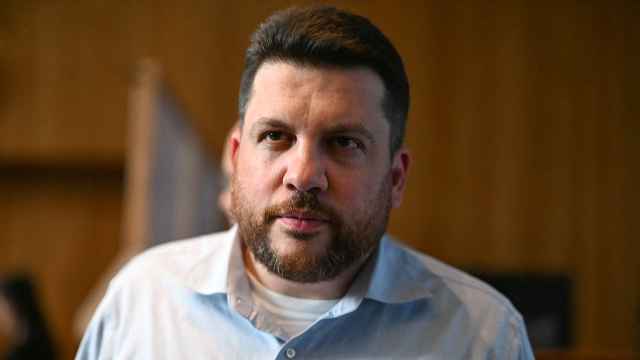How have Russians endured after 100 years of intense trauma including two major revolutions, two world wars, a civil war and other military conflicts, years of famine and 70 years of Soviet repression that imprisoned and killed millions of its citizens? Many other civilizations could not have endured these catastrophes, yet Russia has stayed intact and is seeking to establish itself as a country worthy of respect.
But instead of only evaluating Russia by its politics, it is more accurate to comprehend the country's durability by a greater appreciation of the country's people.
Russians are intense and inscrutable, tough and courageous. They are capable of exceptional devotion. They are willing to sacrifice anything and everything to save their loved ones and their motherland.
Because life in Russia has never been easy except for a favored few, Russians know how to survive on very little and can quickly adapt, switching to survival mode. Though this mode is harsh and can be unrelenting, Russians have learned how to manipulate the system with "blat" (pulling strings, connections) and to stay alive.
Many of my Russian colleagues have shared stories of how their parents and grandparents survived during times of starvation. Some accounts were about the mass collectivization campaigns and resulting famines, while others were about the devastation of World War II. All told of desperate attempts to obtain anything to eat. Many related that their only food was a rotten potato or a pancake made of a tiny bit of flour mixed with water. They ate grass, bark from trees and any animal they could catch. Dogs and cats went first, then rats and other rodents.
They knew of other horrific reports from the Volga region in the 1920s and 1930s and from the 900 days of the Nazi blockade of Leningrad during World War II, when, for a few unknown people, even cannibalism became a means of survival in the darkest hours of human depravity.
Citizens of other countries who have not experienced this level of despair are not prepared to survive though similar long-term deprivations. They pull together to fight major catastrophes such as hurricanes, earthquakes, fires and random terrorist attacks, but few are equipped to handle a long-lasting crisis that requires a survival-only mentality. But almost all Russian adults understand what this entails for them. They not only lived through Soviet times but through the nightmare of the 1990s and the financial instability of the past two decades. And still they persevere.
There is a generational legacy of survival that sustains Russians today.
While the younger generation is especially eager to help Russia become a more progressive, prosperous democratic society, many are still clearly aware that each day is clouded with uncertainty. One of the ways that Josef Stalin controlled the country was to keep his subjects wary of what was going to happen next. He reigned with fear and confusion. While Russia today does not contain Stalin's terror, it still has many of that system's unhealthy traits of vertical control in an increasingly closed system, where citizens have very little actual power to bring about change legally.
In contemplating how Russians have survived in the past through strength, courage, loyalty, adaptability and perseverance, it also is interesting to contemplate other traits that might be activated in the future.
Russians are more creative and intuitive than many of the other cultures with whom I have worked. I have students from 35 countries, and Russians have proven to be the most ingenious in discovering new ways of presenting imaginative techniques.
Russians tend to be persistent and often do not see issues as insurmountable. The project may not be done well or efficiently, but it will get done. It will be acceptable, and they will move on.
During and after the Great Patriotic War, when homes and surrounding forests were destroyed, many Russian families literally lived in holes in the ground. They existed underground until they were able to find an above-ground dwelling, which often meant sharing a small room in a barracks with many other families and no water or sewage facilities. They were very grateful for even this.
During World War II, the Nazi army was better trained and equipped, especially during the first part of the war. The Nazis should have won the major battles on the Russian front. Yet they were constantly amazed that the Russians kept fighting even in severe conditions that would have defeated many other armies.
But Russians often do not fight with logic and strategy. They fight with heart and guts. Many times they don't reason rationally that something cannot be accomplished. If it is something they feel is morally right, they will continue to fight and die until they win.
Self-sacrifice is part of the Russian character. Moreover, Russians have a deep spirituality that is impossible to name and extends far beyond the human label of the "Russian soul." Despite all that Russia has endured, it has produced some of the most magnificent music, elegant art and inspiring literature and poetry ever to grace this planet.
I know many Russians in the psychotherapy community who are using their innate talents and strengths to address their present physical, emotional, intellectual and spiritual challenges. They and their families are becoming healthy in all of these categories. They also are bringing wholeness to people who are suffering as they work in counseling centers and addiction clinics, orphanages and other healing organizations.
The beautiful legacies that Russians bring to their loved ones could also be gifts to the world. Russia is not only a survivor but is fully capable of being a healthy, prosperous motherland with open arms and a generous heart to its family and neighbors.
It would be a tragedy if Russia returned to an unhealthy, closed system in which fear and confusion are allowed to reign and her children live and die in a survival-only mentality.
Marilyn Murray is an educator specializing in the treatment of trauma, abuse and deprivation, with more than 2,000 people attending her classes in Russia and other countries from the Commonwealth of Independent States over the past 10 years. Her second book, "The Murray Method," was recently released in English and Russian.
Related articles:
A Message from The Moscow Times:
Dear readers,
We are facing unprecedented challenges. Russia's Prosecutor General's Office has designated The Moscow Times as an "undesirable" organization, criminalizing our work and putting our staff at risk of prosecution. This follows our earlier unjust labeling as a "foreign agent."
These actions are direct attempts to silence independent journalism in Russia. The authorities claim our work "discredits the decisions of the Russian leadership." We see things differently: we strive to provide accurate, unbiased reporting on Russia.
We, the journalists of The Moscow Times, refuse to be silenced. But to continue our work, we need your help.
Your support, no matter how small, makes a world of difference. If you can, please support us monthly starting from just $2. It's quick to set up, and every contribution makes a significant impact.
By supporting The Moscow Times, you're defending open, independent journalism in the face of repression. Thank you for standing with us.
Remind me later.





